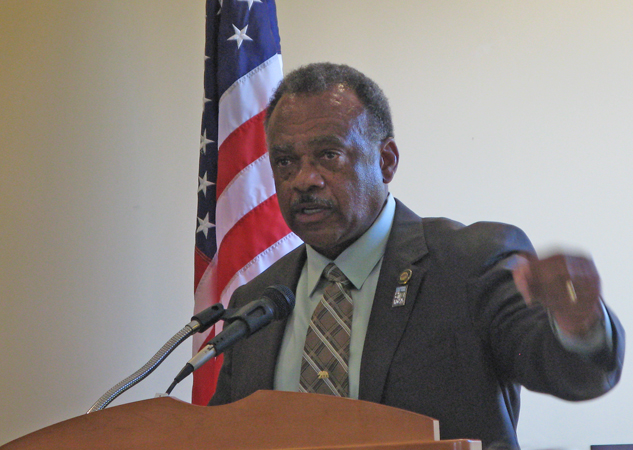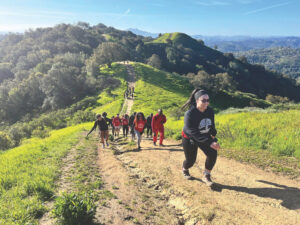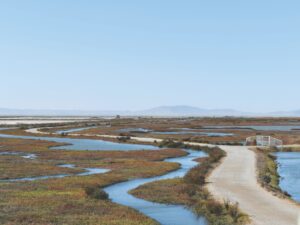California’s new state parks chief, Major General Anthony Jackson, met with representatives of more than a dozen Bay Area open space and conservation groups on Saturday, and more than once emphasized the need for cultural shifts not only within his own department but also in the larger parks and open space movement.
“I’ve come into an organization that I would say has not made a cultural change, a business change, since the 1950s,” Jackson told the approximately 50 attendees of a forum organized by the Regional Parks Association. “We’re approaching our 150th anniversary and we have no business or marketing department.”
Jackson aims to change that quickly — with a new business and marketing department coming on line this month. He mentioned innovations like getting ad campaigns for parks on television or selling state park passes at retail outlets like REI or Walmart.
“We told the rangers to go out and earn more money, but we didn’t provide them with a single MBA to help manage it,” Jackson said. “Californians at large, including the government, have taken the parks for granted.”
He did say that the activists gathered before him were not among the ones taking parks for granted. But, Jackson added, even the assembled park advocates, mostly older and white, are part of the complex problems now bedeviling the parks.
“Groups like yours have stepped up and let the state off the hook. And you have been taken for granted,” he said. “We have got to make our parks more valuable to every Californian. Look at yourselves in this room. You have got to reach out into those Hispanic communities, and those African American communities, to those kids and their parents.”
To that end, Jackson said he’s started an effort to turn San Francisco’s Candlestick State Recreation Area (once on the closure list) and Los Angeles State Historic Park into “gateway parks” where urban families can connect with the whole state parks system. “I want to have the buses there waiting to take kids and their parents to the redwoods.”
But he leavened such big ideas with pragmatism: “This is a ship that’s been going off course for decades. This is going to take time.”
The activists at the forum seemed ready to give Jackson some time, and some help. “In my 30 years of working on park issues,” said Norman La Force, a long-time Sierra club activist, lawyer, and major player in East Bay environmental politics, “this is the first time a director of state parks has come to a meeting of activists like this.”





